Hyundai i30 Wagon vs Mitsubishi ASX - Diferencias y precios comparados
Compara potencia (140 HP vs 158 HP), maletero y precio (30900 € vs 25600 €) de un vistazo. Descubre ahora cuál es la mejor elección para ti – Hyundai i30 Wagon o Mitsubishi ASX.
Costes y consumo
El precio y la eficiencia suelen ser los primeros criterios. Aquí se ve qué modelo mantiene la ventaja a largo plazo, ya sea repostando, cargando o al comprar.
Mitsubishi ASX tiene una ventaja distinto en precio: parte desde 25600 €, mientras que el Hyundai i30 Wagon cuesta 30900 €. La diferencia es de unos 5326 €.
También se aprecia una diferencia en el consumo: el Mitsubishi ASX gasta 4.40 L y es distinto más eficiente que el Hyundai i30 Wagon, que consume 5.70 L. La diferencia es de unos 1.30 L cada 100 km.
Motor y rendimiento
Debajo del capó se descubre qué modelo tiene un carácter más deportivo y quién acelera mejor.
En cuanto a potencia, el Mitsubishi ASX tiene una ventaja algo: 158 HP frente a 140 HP. Eso supone un aumento de unos 18 HP CV.
En aceleración de 0 a 100 km/h, el Mitsubishi ASX es en pequeña medida más rápido: completa el sprint en 8.50 s, frente a 9.80 s del Hyundai i30 Wagon. Es aproximadamente 1.30 s más veloz.
En velocidad máxima, el Hyundai i30 Wagon es mínimo superior – alcanza 197 km/h, mientras que el Mitsubishi ASX se queda en 180 km/h. La diferencia es de unos 17 km/h.
También hay diferencias en el par motor: el Mitsubishi ASX empuja ligero con 270 Nm frente a 253 Nm. La diferencia ronda los 17 Nm.
Espacio y practicidad
Ya sea coche familiar o compañero diario – ¿cuál ofrece más espacio, flexibilidad y confort?
Ambos modelos ofrecen espacio suficiente para 5 personas.
En peso en vacío, el Mitsubishi ASX es ligero más ligero – 1296 kg frente a 1316 kg. La diferencia ronda los 20 kg.
En capacidad de maletero, el Hyundai i30 Wagon ofrece algo más espacio – 602 L frente a 484 L. La diferencia es de unos 118 L.
En capacidad máxima de carga, el Hyundai i30 Wagon es apenas perceptible mejor – hasta 1650 L, unos 54 L más que el Mitsubishi ASX.
En capacidad de carga útil, el Hyundai i30 Wagon ligeramente se impone – 524 kg frente a 449 kg. La diferencia es de unos 75 kg.
¿Quién gana la carrera?
El Mitsubishi ASX resulta ser deja pocas opciones al rival y se convierte en nuestro ¡DriveDuel Champion!
En este comparativo, el Mitsubishi ASX demuestra ser el modelo más completo.
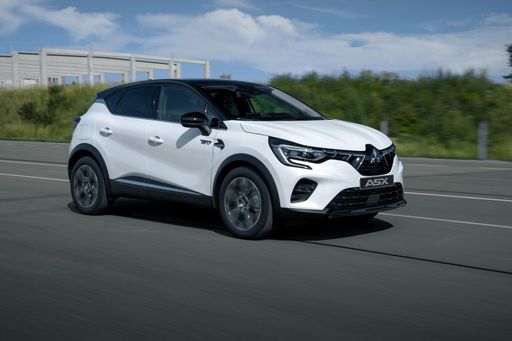
Mitsubishi ASX
Costos y consumo
Ver análisis detallado
Motor y rendimiento
Ver análisis detallado
Dimensiones y carrocería
Ver análisis detallado
Hyundai i30 Wagon
El Hyundai i30 Wagon es un familiar práctico y bien atado, pensado para quienes necesitan espacio sin renunciar a un diseño urbano y actual. Su conducción cómoda y su interior funcional lo convierten en una compra sensata para familias y viajeros que buscan eficiencia y pocos dramas en el día a día.
detalles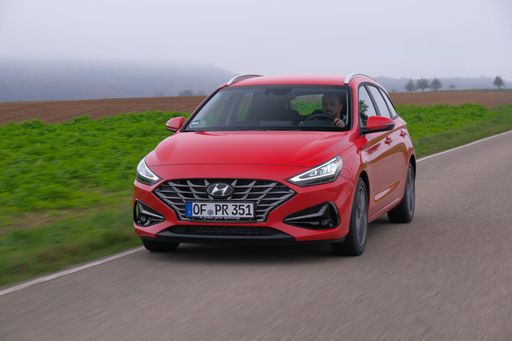
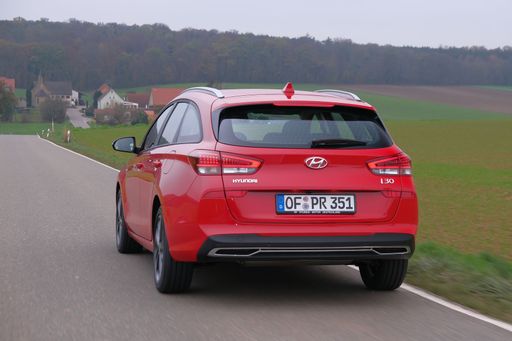
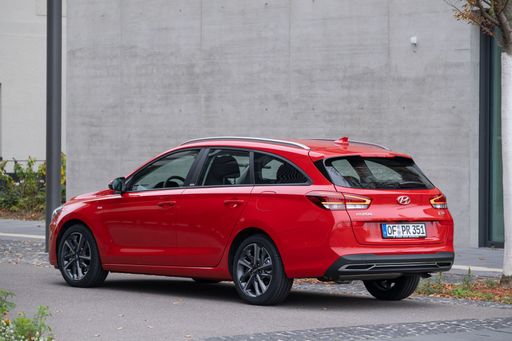
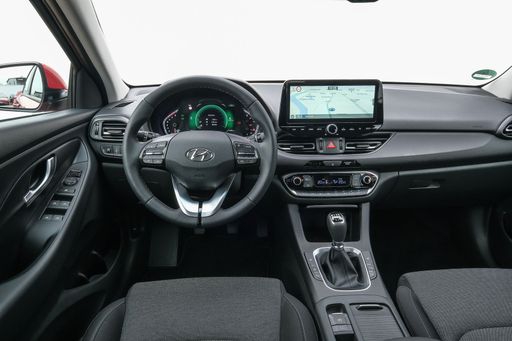
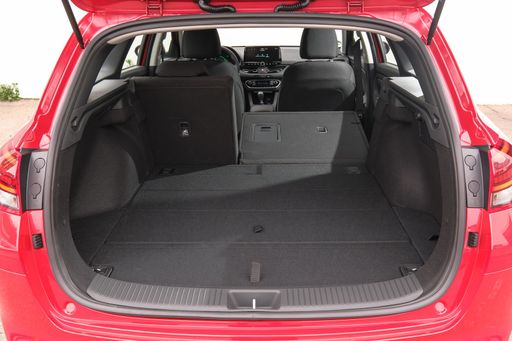
Mitsubishi ASX
El Mitsubishi ASX es un SUV compacto que apuesta por la sencillez eficaz: no presume, cumple. Para quien busca un coche práctico y sin dramas, el ASX se presenta como un compañero fiable que sabe pasar desapercibido y resolver el día a día con solvencia.
detalles
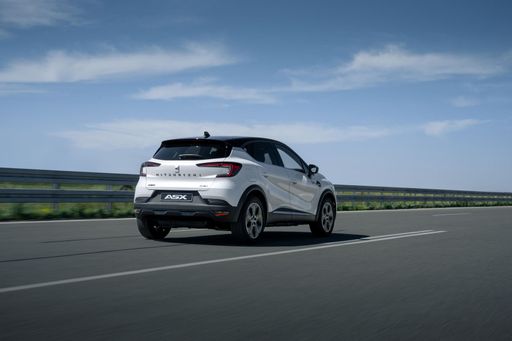

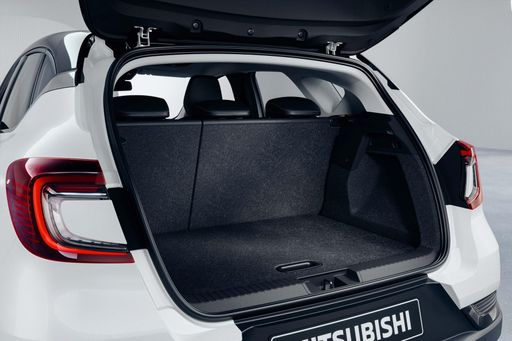

|

|
|
|
|
Costos y consumo |
|
|---|---|
|
Precio
30900 - 37400 €
|
Precio
25600 - 39200 €
|
|
Consumo L/100km
5.7 - 6 L
|
Consumo L/100km
4.4 - 6 L
|
|
Consumo kWh/100km
-
|
Consumo kWh/100km
-
|
|
Autonomía eléctrica
-
|
Autonomía eléctrica
-
|
|
Capacidad de la batería
-
|
Capacidad de la batería
-
|
|
co2
130 - 136 g/km
|
co2
99 - 135 g/km
|
|
Capacidad del tanque
50 L
|
Capacidad del tanque
48 L
|
Dimensiones y carrocería |
|
|---|---|
|
Tipo de carrocería
Familiar
|
Tipo de carrocería
SUV
|
|
Asientos
5
|
Asientos
5
|
|
Puertas
5
|
Puertas
5
|
|
Peso en vacío
1316 - 1461 kg
|
Peso en vacío
1296 - 1493 kg
|
|
Capacidad del maletero
602 L
|
Capacidad del maletero
348 - 484 L
|
|
Longitud
4585 mm
|
Longitud
4239 mm
|
|
Anchura
1795 mm
|
Anchura
1797 mm
|
|
Altura
1475 mm
|
Altura
1575 mm
|
|
Capacidad máxima del maletero
1650 L
|
Capacidad máxima del maletero
1458 - 1596 L
|
|
Capacidad de carga
439 - 524 kg
|
Capacidad de carga
397 - 449 kg
|
Motor y rendimiento |
|
|---|---|
|
Tipo de motor
Gasolina, Híbrido ligero gasolina
|
Tipo de motor
Gasolina, Híbrido ligero gasolina, Híbrido completo
|
|
Transmisión
Manuel, Automática
|
Transmisión
Manuel, Automática
|
|
Detalle de transmisión
Caja manual, Automático de doble embrague
|
Detalle de transmisión
Caja manual, Automático de doble embrague, Caja automática
|
|
Tipo de tracción
Tracción delantera
|
Tipo de tracción
Tracción delantera
|
|
Potencia HP
100 - 140 HP
|
Potencia HP
91 - 158 HP
|
|
Aceleración 0-100km/h
9.8 - 13.3 s
|
Aceleración 0-100km/h
8.5 - 14 s
|
|
Velocidad máxima
178 - 197 km/h
|
Velocidad máxima
168 - 180 km/h
|
|
Par motor
172 - 253 Nm
|
Par motor
160 - 270 Nm
|
|
Número de cilindros
3 - 4
|
Número de cilindros
3 - 4
|
|
Potencia kW
74 - 103 kW
|
Potencia kW
67 - 116 kW
|
|
Cilindrada
998 - 1482 cm3
|
Cilindrada
999 - 1789 cm3
|
General |
|
|---|---|
|
Año del modelo
2024
|
Año del modelo
2024 - 2025
|
|
Clase de eficiencia de CO2
D, E
|
Clase de eficiencia de CO2
D, C
|
|
Marca
Hyundai
|
Marca
Mitsubishi
|
¿Qué opciones de tracción tiene el Hyundai i30 Wagon?
Disponible con Tracción delantera.
Los precios y datos mostrados son estimaciones basadas en los precios de lista en Alemania y pueden variar según el país. Esta información no es legalmente vinculante.
